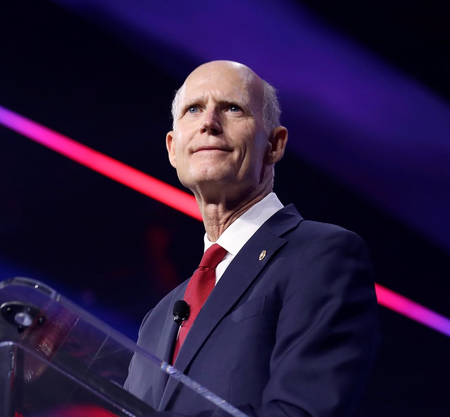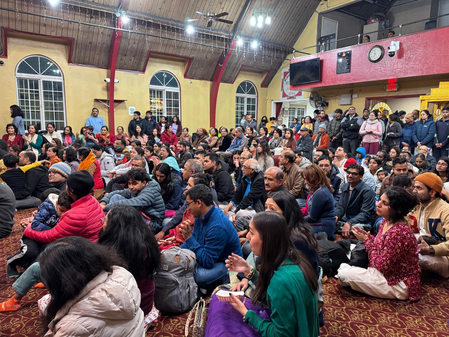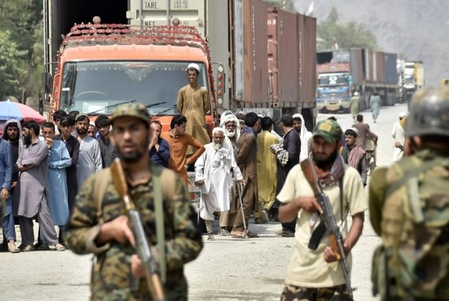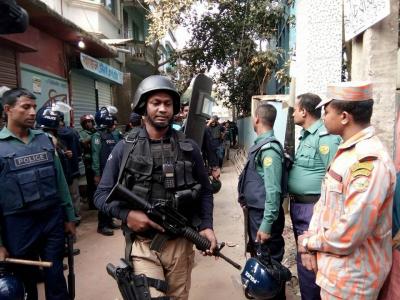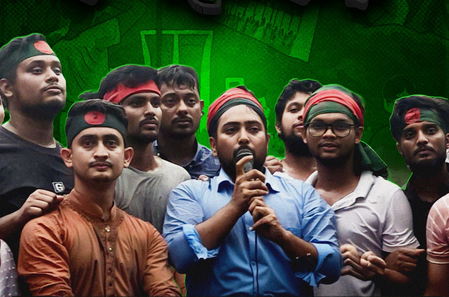
Dhaka: Bangladesh’s National Citizen’s Party (NCP) led by Nahid Islam has threatened to halt the February 2026 general elections if it is not allocated one of its requested symbols – a red or white Shapla (Water Lily). The Election Commission (EC) had confirmed that the NCP had initially applied for ‘Shapla’, pen, or mobile phone but later revised the request and is adamant on getting ‘Shapla’ – the national flower and national emblem of Bangladesh – as an election symbol.
Sarjis Alam, the chief organiser of the NCP, took to his social media, stating, “Since there’s no legal barrier, the NCP’s symbol must be the Shapla. There is no other option. Otherwise, we will also see how the elections take place and who dreams of gaining power and enjoying the spoils.”
On September 24, NCP Convenor Islam had e-mailed an application to the EC requesting ‘Shapla’ as an electoral symbol. This was after the EC had rejected their request, announcing that the party would not be allocated the requested symbol.
The NCP application stated that on June 4, NCP representatives had met a member of the committee at the EC office, where they were assured that ‘Shapla’ would be included in the final list. Subsequently, on June 22, the party filed its application for registration as a political party in line with the EC’s March 10 public notification while also seeking reservation of the ‘Shapla’ symbol. However, the EC declined the request.
It is relevant to point out that NCP had met the Chief Election Commissioner and other commissioners on July 13 to press for inclusion of ‘Shapla’ as an election symbol. The application cited Article 4(3) of the Constitution, the Bangladesh National Anthem, Flag and Emblem Order, 1972, and the Bangladesh National Emblem Rules, 1972, stressing that there is no legal bar to include ‘Shapla’ as an electoral symbol.
The NCP argues that only the full National emblem design is restricted and not its individual components. ‘Shapla’, the party states, is one component of the emblem, not the emblem itself. NCP in its statement highlighted the EC’s inconsistencies, saying the commission has cited the flower’s presence in the DGFI logo as a reason, but it has already allocated paddy stalks, eagle and balance scales, which also appear prominently in the logos of Bangladesh Police, Bangladesh Air Force and the Supreme Court. NCP’s Joint Chief Coordinator Arifur Rahman Tuhin maintained that the party would not settle for any alternative to the ‘Shapla’.
Interestingly, EC Senior Secretary Akhtar Ahmed has stated that the NCP must pick its electoral symbol from the official list. On October 2, the EC ruled against the NCP’s request, informing the party that the ‘Shapla’ is not a scheduled symbol under the Election Conduct Rules. The EC has sent the NCP a list of 50 alternative symbols and given them time until October 7 to choose one. The list of reserved symbols for party and independent candidates has been expanded from 69 to 115, with 50 registered parties and five suspended.
The dispute is related to the broader legacy of political violence and suppression in Bangladesh, including the May 2013 Shapla Square crackdown that the NCP has called to investigate. The NCP’s anti-Awami League rhetoric has brought it closer to right-wing Islamist and hardline entities like Hefazat-e-Islami (HeI) and Jamaat-e-Islami (JeI).
Several new parties are also expected to obtain registration ahead of the upcoming 13th parliamentary election.
Alongside the party-specific logos, the EC has reserved symbols for independent candidates as well. To facilitate this, the commission will amend the symbol list under the Election Conduct Rules and send it to the law ministry for vetting soon. Although there have been calls to remove the Awami League’s ‘boat’ logo from the list, the EC has retained it in a suspended status.
The NCP also asserts that before the parliamentary polls, the Constituent Assembly election must be held first, followed by the drafting of a new constitution under the July Charter framework. If that demand is prioritised, then a parliamentary election in Bangladesh in the near future becomes highly unlikely.
The electoral politics of Bangladesh has been dominated by the Awami League and the Bangladesh Nationalist Party (BNP). In the last 15 months, the illegitimate, unelected interim government led by Muhammad Yunus and his advisors have understood that the volatile, violence-prone political culture of Bangladesh is difficult to be transformed despite the popular student uprising. The Yunus administration has been involved in its legislative adventurism, shrouded under the aegis of reform and widely regarded as a political vendetta. Ordinances such as the Cyber Protection Act, amendments to the International Crimes (Tribunals) Act, and the Enforced Law Ordinance have drawn widespread ire.
Yunus’ love for the NCP is also well known which is not driven by any core national interests of Bangladesh, or in pursuance of genuine commitment of development and growth or to elevate the electoral politics for good governance, but driven by political chicanery and as part of nefarious design of mobilising students, thereby harming the interests of common people of Bangladesh.
(The writer is an expert on South Asia and Eurasia. He was formerly with Manohar Parrikar Institute for Defence Studies and Analyses. Views expressed are personal)
–IANS
/as

